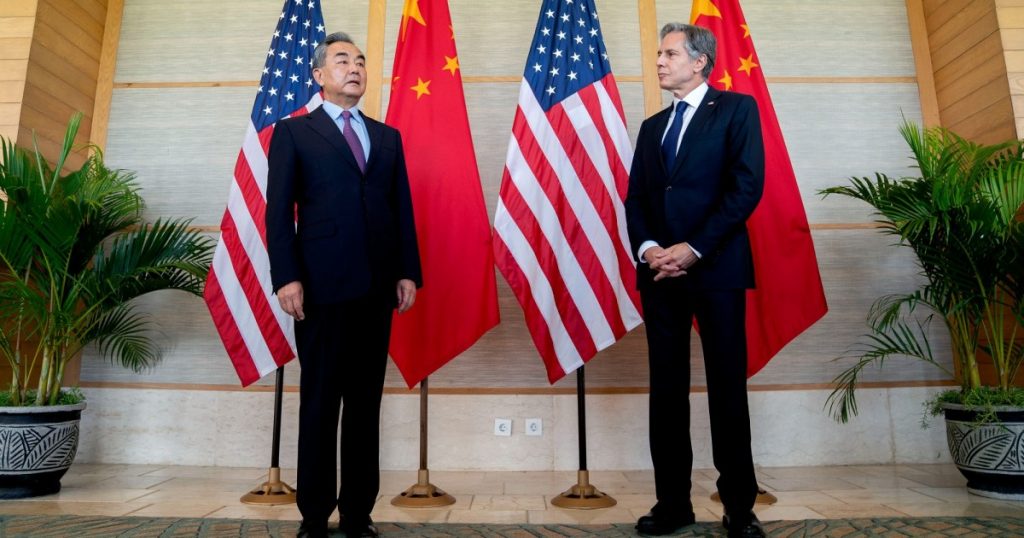Antony Blinken Tried to Convince China to Reject Russia. It Went About as Well as You’d Expect.
Secretary of State Antony Blinken meets with Chinese Foreign Minister Wang Yi in Indonesia in July 2022.Stefani Reynolds/AP
Facts matter: Sign up for the free Mother Jones Daily newsletter. Support our nonprofit reporting. Subscribe to our print magazine.As Secretary of State Antony Blinken met with his Chinese counterpart for a rare, bilateral chat on Saturday, the Associated Press said the two countries were seeking “to calm rising tensions on many fronts.” After a five-hour meeting in Indonesia, where talks were “exceptionally candid,” per Bloomberg, it doesn’t appear the rivals are any closer to navigating their increasingly adversarial relationship.
Blinken, in comments to reporters after his discussion with Foreign Minister Wang Yi of China, focused on the Chinese government’s unique position in the ongoing Russian invasion of Ukraine. Despite pledging support to Ukraine and claiming to be neutral, China has continued buying Russian oil and used its state propaganda to amplify Vladimir Putin’s talking points.
“It’s pretty hard to be neutral when it comes to this aggression,” Blinken said. “There is a clear aggressor. There is a clear victim.” More to the point, China’s actions do not resemble those of a neutral party. As Blinken pointed out, Putin and Chinese leader Xi Jinping released a lengthy statement of friendship in early February, when Putin was widely reported to be preparing for an invasion of Ukraine.
In the weeks since the start of the war, China has resisted helping the United States isolate Russia and has often used Putin’s own criticisms of the West to justify its stance, like when state media borrowed his description of the United States as an “empire of lies.” Blinken said he “tried to convey” to Wang that “this really is a moment where we all have to stand up” to condemn Russia’s aggression and push to end the war. “I won’t characterize his response,” Blinken added.
China’s official readout of the meeting included a familiar list of grievances, including the claim that “many people thus argue that the United States is taking on growing China-phobia.” It also noted that Wang “refuted the United States’ erroneous views on Xinjiang, Hong Kong, and maritime issues, among others.”
If there is any silver lining in these talks, it is that both sides considered them “constructive” and committed both countries to an ongoing dialogue. But the geopolitical space in which to actually work through these differences seems increasingly constrained. At least this meeting did not devolve into a public screaming match like last year’s confab in Alaska. Given the increasingly grim state of US-China relations, that may be a victory in itself.





